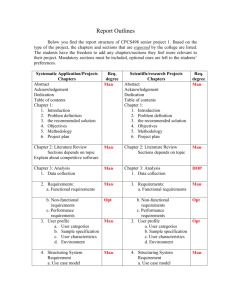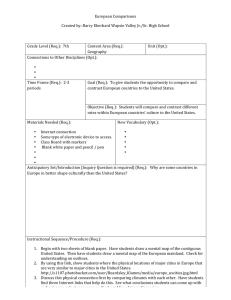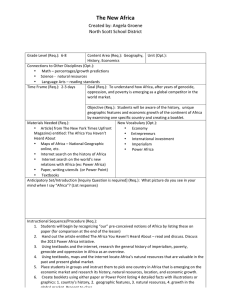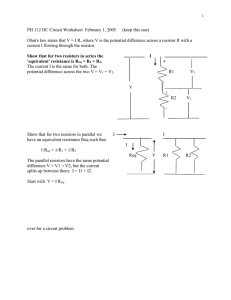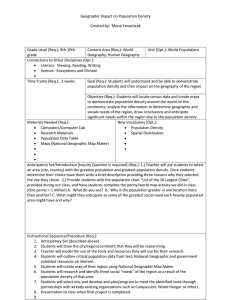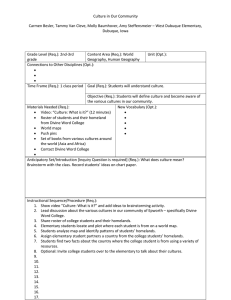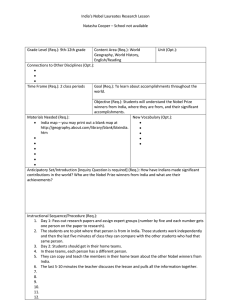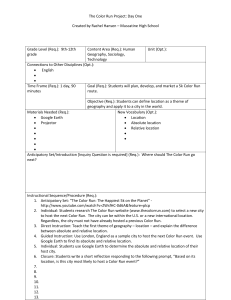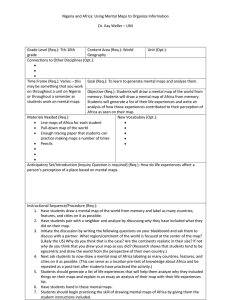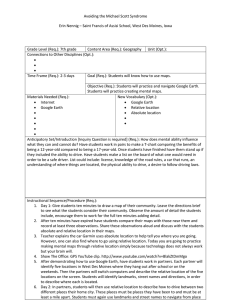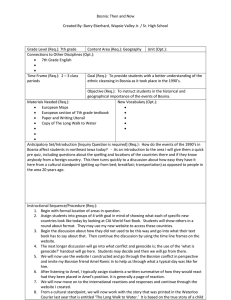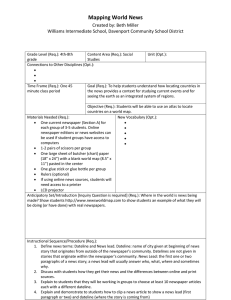Getting Familiar with Mapping
advertisement
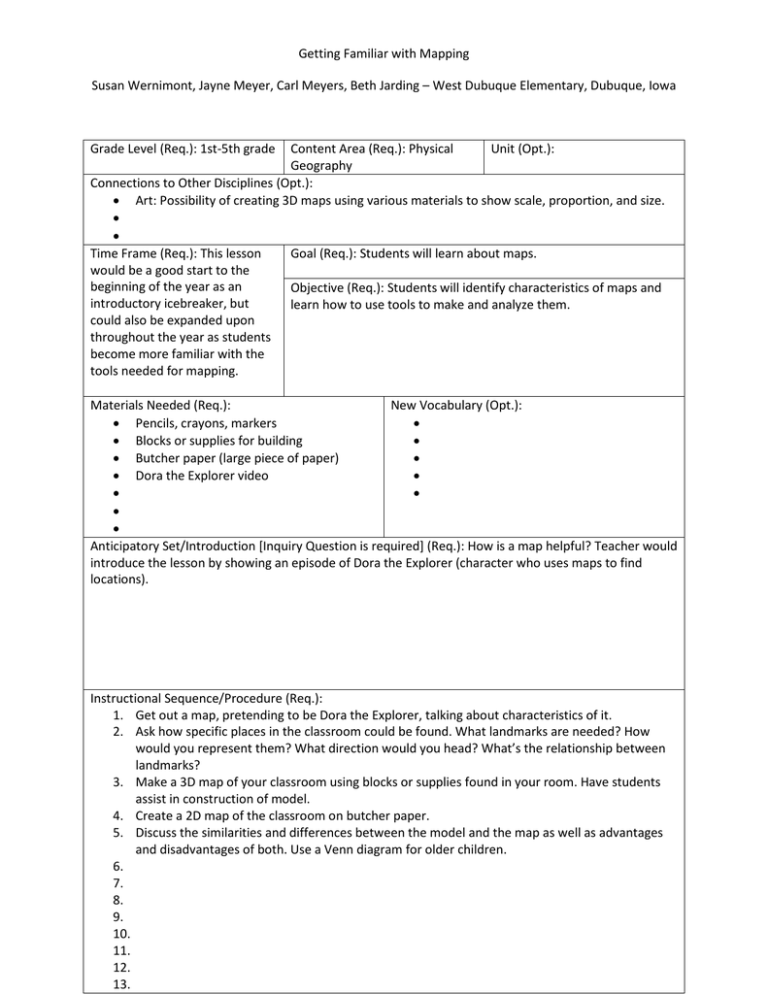
Getting Familiar with Mapping Susan Wernimont, Jayne Meyer, Carl Meyers, Beth Jarding – West Dubuque Elementary, Dubuque, Iowa Grade Level (Req.): 1st-5th grade Content Area (Req.): Physical Unit (Opt.): Geography Connections to Other Disciplines (Opt.): • Art: Possibility of creating 3D maps using various materials to show scale, proportion, and size. • • Time Frame (Req.): This lesson Goal (Req.): Students will learn about maps. would be a good start to the beginning of the year as an Objective (Req.): Students will identify characteristics of maps and introductory icebreaker, but learn how to use tools to make and analyze them. could also be expanded upon throughout the year as students become more familiar with the tools needed for mapping. Materials Needed (Req.): New Vocabulary (Opt.): • Pencils, crayons, markers • • Blocks or supplies for building • • Butcher paper (large piece of paper) • • Dora the Explorer video • • • • • Anticipatory Set/Introduction [Inquiry Question is required] (Req.): How is a map helpful? Teacher would introduce the lesson by showing an episode of Dora the Explorer (character who uses maps to find locations). Instructional Sequence/Procedure (Req.): 1. Get out a map, pretending to be Dora the Explorer, talking about characteristics of it. 2. Ask how specific places in the classroom could be found. What landmarks are needed? How would you represent them? What direction would you head? What’s the relationship between landmarks? 3. Make a 3D map of your classroom using blocks or supplies found in your room. Have students assist in construction of model. 4. Create a 2D map of the classroom on butcher paper. 5. Discuss the similarities and differences between the model and the map as well as advantages and disadvantages of both. Use a Venn diagram for older children. 6. 7. 8. 9. 10. 11. 12. 13. 14. 15. 16. 17. 18. 19. 20. Formative Evaluation (Req.): Participation in discussion, understanding of the activity in class Assessment (Req.): For homework, have students create a map of a room in their own house. Have students choose another room in the school (cafeteria, playground, hallway, art room, etc.) and create a map of that space. Iowa Core Curriculum Standards Used (Req.): • Geography, grade K-5: Understand the use of geographic tools to locate and analyze information about people, places, and environments. • Geography, grade K-5: Understand how geographic processes and human actions modify the environment and how the environment affects humans. • • • • • • • • Common Core Curriculum Standards Used (Opt.): • • • • • NGS Standards Used (Req.): • How to use maps and other geographic representations, tools, and technologies to acquire, process, and report information from a spatial perspective • How human actions modify the physical environment • How physical systems affect human systems • • • • • • • Five Themes of Geography Used (Req.): • Location • Place • Region • • School District Standards and Benchmarks (Opt.): • • • 21st Century Universal Constructs (Opt.): Creativity Other Disciplinary Standards (Opt.): • • • • • Other Essential Information (Opt.): Other Resources (Opt.): • • • •
